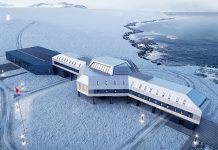The Mars Perseverance Rover has discovered volcanic rocks that solidified from contact with water – or those that have subsequently interacted with them – on the surface of Mars in a groundbreaking discovery.
The media office of the University of California in Berkeley indicates that studying the samples collected by the probe on Earth will reveal the history of the Red Planet’s composition, its interiors, and much more.
Professor David Schuster from the University says: “Collecting samples of these rocks on Mars is a great gift for us.”
The professor and his scientific team indicate that these rocks were discovered in different areas of the Jezero crater, which is believed to be the basin of an ancient lake that dried up, and the probe, during the first year of its operation, found a lot of evidence corroborating the theory.
This includes several mud deposits and sedimentary rocks that can only form when liquid water is present.
These samples have helped scientists discover many layers of volcanic magma in four regions of the delta of an ancient river, which flowed into Lake Jezero, that hardened as a result of contact with water or interacted actively with it after it solidified.
Studying these rock samples will help scientists determine the exact age of the crater, in addition to revealing the chemical composition of Martian water bodies that touched similar rocks.
According to researchers, this information will help biochemists determine the elements and chemicals present in Martian waters as a result of their interaction with hot volcanic rocks.
Identification of chemical elements and their compounds is also important for assessing whether molybdenum and other elements essential to the functioning of essential enzymes in living cells are present on Mars.
It is reported that the probe devices studied these samples, and then placed them in a capsule in the hope of transferring them to Earth in the first half of 2030.






